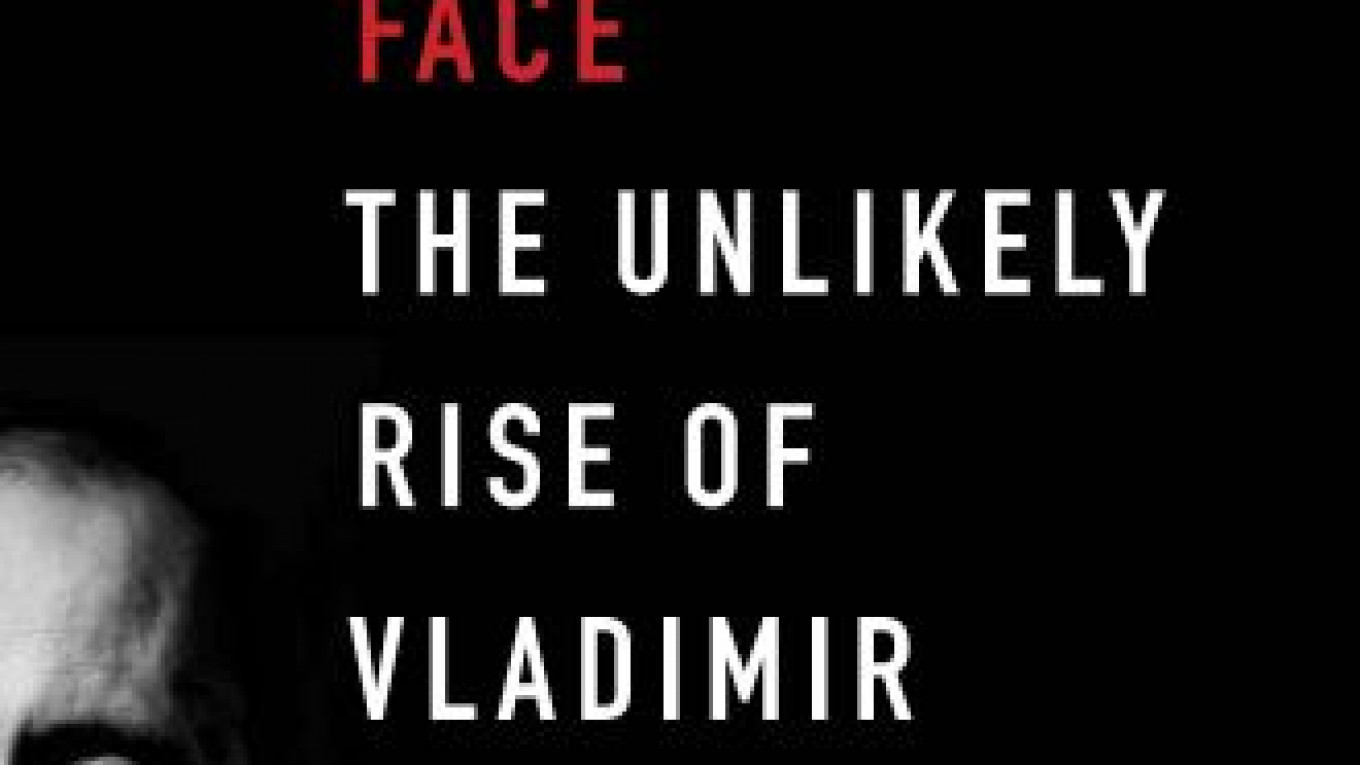The daily work of journalists is often divided by their managers, editors and the like into two categories: "Off-diary" and "diary" articles.
The split means that the former comprises unpredictable, unexpected and undigested news events — anything that the reporter couldn't have penciled in, such as a terror attack, a natural disaster or a politician's gaffe.
The latter, meanwhile, concerns anticipation, forecasting and being forewarned and forearmed about a long-scheduled newsworthy occasion like an election or a news briefing.
But how does a journalist react when these happenstances collide? When a pre-planned outcome clashes with a series of unforeseen occurrences?
One answer is Masha Gessen's political biography-cum-memoir of Vladimir Putin, published in Britain last month under the title "The Man Without a Face: The Unlikely Rise of Vladimir Putin."
Gessen has expanded a long-form article written for Vanity Fair, a glossy U.S. monthly, about the venality of post-
Soviet politics and the siloviki, into a book prepared and published in time for the no-brainer occasion of Putin's return to the presidency.
So far, so "diary."
But major flies in Gessen's ointment were, of course, the eruption of mass demonstrations against the flawed State Duma elections of December 4, 2011, Putin's shock announcement that Dmitry Medvedev had been a puppet all along and various riotous "off-diary" incidents thereafter.
In Gessen's book, this conflict produces an odd, bloglike epilogue covering Dec. 3 to Dec. 10, 2011. You can almost hear the presses grinding into gear to get the book printed, published and pushed in time for the deadline.
It's a shame because Gessen, rather against her solid first-draft-of-history journalistic instincts, had in the preceding 11 chapters made a vicious stab at nailing Putin to the historical stake.
These violent metaphors are deliberate. Gessen's account is full-on, poke-in-the-eye spite and bile. If you are not a Putin fan, or have ever had misgivings about his coarse stylistic fireworks, you will be more than satisfied here.
From his peculiar walk, toilet language, frosty personal relationships and even a mental disorder related to grabbing, which Gessen spuriously introduces, it is all here.
But what does it amount to?
Gessen underlines again and again that Putin is "small," "vengeful," academically useless, without interest as a person or personality. Yet rather quickly, vast and complex events such as the on-the-ground atrocities of the Chechen wars, the Moscow apartment bombings, the Nord-Ost theater siege, the Beslan tragedy, the poisoning of Alexander Litvinenko and Anna Politkovskaya, (but not, weirdly unmentioned, that of Viktor Yushchenko) and the death of former St. Petersburg city council leader Anatoly Sobchak are being woven into a scheme that directly leads to one man: Putin.
Well, is he a know-nothing thug or an evil genius? Which? Gessen can't square the circle of her arguments nor provide substantive backup for her claims.
While one suspects the author would like to scream, "He killed them all!" the book's editor has (probably) added modifiers like probably all over the place.
This means that inference and innuendo are all that are added to the well-thumbed record.
Gessen is, however, a fluid and evocative writer. The book is likeable from page one, and occasionally deliciously bitchy, with telling details retold well.
The first parts of the book are also good at portraying the complicated intersection of St. Petersburg's intelligentsia and protodemocrats in the 1990s.
Increasingly intriguing accounts of Gessen's own circumstances and that of her growing family punctuate the arc of the politico-Putin narrative her book struggles to convincingly galvanize.
During the drama, the Russian people remain strangely absent. Some salt is shaken on the slugs of the Moscow-centric Western press, who, as Gessen tells it, probably let Putin get away with murder.
Her prologue is a moving and personal depiction of her reaction to the assassination in 1998 of Galina Starovoitova, a famed new voice in the stew of dreams and nightmares in the immediate post-Soviet era. She adds vague but emotional encounters with Marina Salye, who investigated Putin's work during his time in the Leningrad government and called for his dismissal and a criminal investigation. After years of keeping out of the public eye in the Russian countryside, Salye died last month aged 77.
Gessen, it is tempting to say, pads a flawed, impressionistic polemic about Putin with flashes of fascinating personal memoir.
Her instincts are to detach herself from the story, but the reader is left wanting more of her and less of him.
"The Man Without a Face: The Unlikely Rise of Vladimir Putin" by Masha Gessen (2012) is published in Britain by Granta, priced at £20, and in the U.S. by Riverhead, priced at $27.95.
A Message from The Moscow Times:
Dear readers,
We are facing unprecedented challenges. Russia's Prosecutor General's Office has designated The Moscow Times as an "undesirable" organization, criminalizing our work and putting our staff at risk of prosecution. This follows our earlier unjust labeling as a "foreign agent."
These actions are direct attempts to silence independent journalism in Russia. The authorities claim our work "discredits the decisions of the Russian leadership." We see things differently: we strive to provide accurate, unbiased reporting on Russia.
We, the journalists of The Moscow Times, refuse to be silenced. But to continue our work, we need your help.
Your support, no matter how small, makes a world of difference. If you can, please support us monthly starting from just $2. It's quick to set up, and every contribution makes a significant impact.
By supporting The Moscow Times, you're defending open, independent journalism in the face of repression. Thank you for standing with us.
Remind me later.






